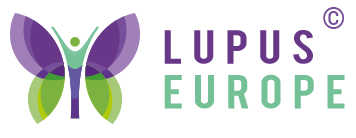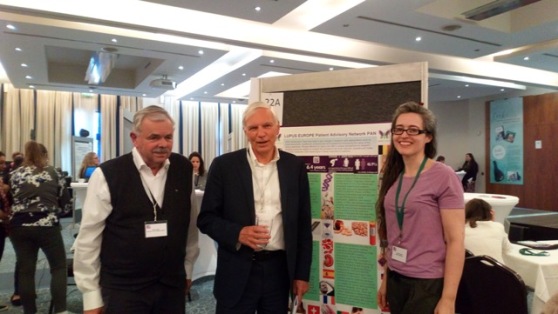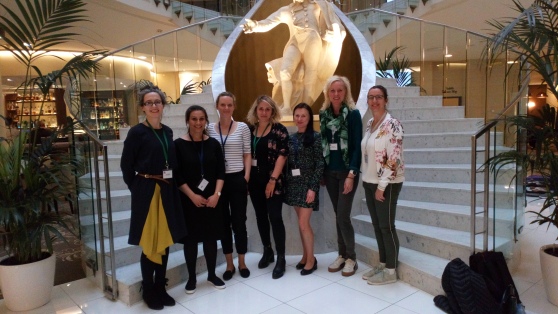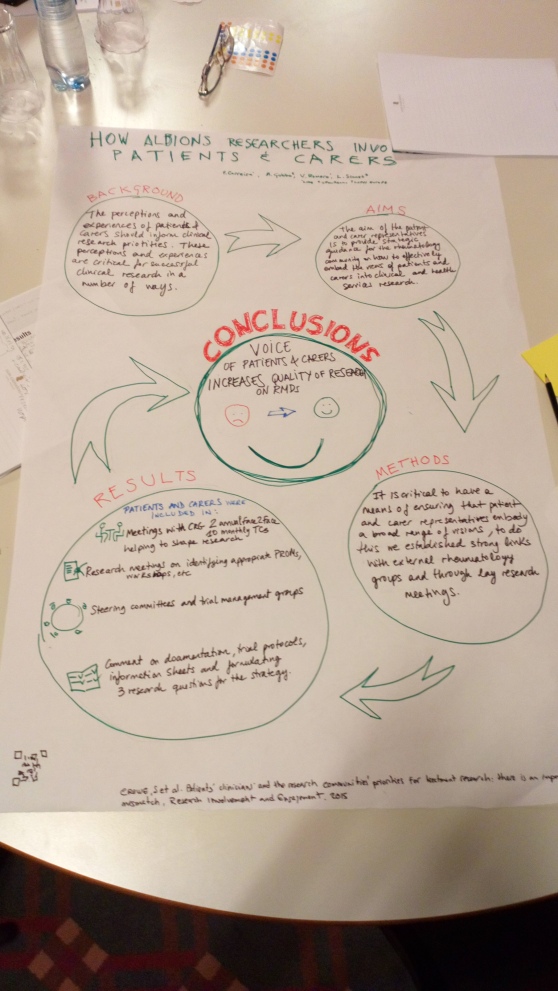| The 22nd EULAR Annual European Conference of PARE took place in the stunning, historical city of Prague in the Czech Republic 5-7 April 2019 with over 120 delegates. PARE ‘People with Arthritis and Rheumatism in Europe’ forms an integral role at EULAR ‘The European League Against Rheumatism’. The presentations and workshops at the PARE Conference were developed to inform, empower and motivate EULAR member organisations of PARE. The event was a dynamic opportunity for delegates to learn from experts and each other. The organisations represented were for those with rheumatic and musculoskeletal diseases (RMDs). Some attending were from long established and experienced organisations and others were more recently formed, but were equally keen with new ideas ready to flourish. All representatives were selected because each have an interest in developing one or more of the topics covered in the programme. The aim being to share what was learned and for those organisations to benefit from the information and contacts gathered at the PARE Conference. A Young PARE workshop was underway on the first day, but apparently I did not quite make the age range criteria. The cheek of it ! Workshop leaders headed up the discussion on ‘Transitions in Life – Implications for Young People with RMDs.’ The Best Practice Fair The LUPUS EUROPE Abstract The LUPUS EUROPE Poster i. the large majority of people experiencing symptoms that limit ability to carry out daily activities Pictures bordered the display denoting the main lupus symptoms from joint pain, fatigue, organ involvement to headaches and hairloss. The target in the crosshair was shaped by more pictures of the lupus journey with medications, a body map of symptoms and European flags of all PAN members in the team. A central picture of an egg timer focused the concept of time being of the essence. The speeding up of the research process by patients being at the forefront from the inception of projects. The Plenary
There were presentations, further welcomes and panel discussions by the Standing Committee, Young PARE and various Czech Rheumatological Associations. The presentations focused on the EULAR Strategic Goals 2018-2023 on Advocacy, that by 2023, EULAR’s activities and related advocacy will have increased participation in work by people with RMDs. This included the success demonstrated by research on ‘The Effect of Anti-TNF Therapy on Work Productivity and Activity Impairment in Patients with RA, AS and PsA over One Year – Real Life Data from the Czech Biologics Registry ATTRA from the Institute of Rheumatology in Prague’. In addition, the runner-up of the Edgar Stene Prize 2019, Francisco Carreira Roca gave an impassioned speech about his personal journey as a trained architect and then becoming wheelchair bound in his essay ‘My Ideal Employer – Work without barriers for people with RMDs: Work Right’. Delegates with lupus attending PARE
At the close of events on Friday in the Plenary Room Dieter Wiek, Vice President of the PARE Standing Committee, made a request to the plenary on my behalf. He asked if any delegates attending with lupus would like to come together for a meet and greet with a photo call at the spectacular entrance of the Don Giovanni Hotel. We found there were seven of us attending from Sweden, Slovakia, Portugal, Poland, Belgium and the UK including the PARE President, the Chair of Young PARE, original and new PAN members, plus current and former LUPUS EUROPE Trustees. Workshops A. Workshop: Working with Policy Makers, Employers and Trade Unions: a workshop to support the advocacy activities of PARE organisations at national and European levels B. Workshop: Effectively Designing and Presenting a Poster
We created a dynamic title asking how researchers involve patients and carers. It had a flow of direction with circles highlighting the background, aims, methods, results and conclusions denoting many of the main points with diagrams. The conclusion was placed directly in the centre to focus attention with a smiley face to illustrate a positive outcome had been reached. There was even a QR code to keep a track of how many would be downloading the poster directly. In conclusion it was found it is not as easy as it looks, planning is key, having a clear brief is helpful, as is knowing your audience, teamwork is vital and there is no right or wrong way to design a poster. C. Workshop: Working with Pharmaceutical Companies D. Workshop: Occupational Rehabilitation: how can organisations of PARE support people with RMDs to work E. Workshop: How to Care for Informal Carers’ Needs: what support can organisations of PARE offer ? F. Workshop: Finding the Right Job at the Right Time (Young PARE) G. Workshop: Entitlements and Knowing Your Rights at Work (Young PARE) H. Workshop: The Value of Work: asking the right questions was also live streamed on the internet. Sightseeing and Gala Dinner |
EULAR PARE 2019, the Highlights
Live Twitter Feed
✅ #Rosacea versus #LUPUS ⬇️
Practical tips for distinguishing the 2 conditions 👍
🚨𝗗𝗲𝗮𝗱𝗹𝗶𝗻𝗲 𝗔𝗽𝗽𝗿𝗼𝗮𝗰𝗵𝗶𝗻𝗴 𝗙𝗮𝘀𝘁❗
Please take part in the Living With Lupus in 2024 survey.
🗣️ Your insights are crucial for capturing the diverse experiences of those living with #lupus across Europe.
🧵Find the link for all 21 languages in this thread ⤵️
✅ Management of #glucocorticoids at the 4th advanced workshop on #Lupus by @SLEuroSociety by J Delgado Alves:
- Main mechanisms of action
- Optimal starting dose (organ- and severity driven)
- Tapering strategy (how fast/additional medications?)
- Stopping? (Yes/no/who?)
🔥 #SLE #lupus patients: Be part of the conversation. Let your voice be heard.
What is it like living with lupus?
Help @LupusEurope learn more about lupus patients so the rest of us know what you are going through
✅ Today is the start of the 4th @SLEuroSociety Advanced #Lupus #Workshop, an event created when I became President of the European Lupus Society. We bring together 30 lucky participants + an amazing faculty for 2 days of intensive & collective discussion of complex #SLE cases 👍
✍🏻Пройдіть опитування.
🔊Поділіться з вашою громадою.
👨🏼⚕Якщо ви медичний працівник і лікуєте пацієнтів з лупусом в Європі, ми були б дуже вдячні, якби ви поінформували своїх пацієнтів.
https://buff.ly/3xIyiBy
📣 One week left to register for our online EUPATI Essentials Training! 📣
Are you an industry, academia or consortium member wanting to enhance your knowledge on patient engagement?
🎯 Register now ▶️ https://bit.ly/4auAmen
#EUPATI #Essentials #OnlineTraining #RegisterToday
My absolute pleasure to work with @Lupusreference CC Mok and Talia for this nice review, prepared for the general medical community to better understand Dx challenge and Mx of SLE. Lots we can do to improve outcomes inc comorbidity burden! https://authors.elsevier.com/a/1ixq7V-4XOrME
Live Facebook Feed
2 days ago
♦️ Few days left to fill the Living With Lupus in 2024 survey!
✍🏻Doe mee aan de enquête.
🔊Deel met uw gemeenschap.
🙏 Help us and NVLE achieve more answers to ensure that the Dutch population is represented in the results
buff.ly/3xGBU6T
... See MoreSee Less
View Comments
- likes love 12
- Shares: 2
- Comments: 0
0 CommentsComment on Facebook
3 days ago
♦️ Few days left to fill the Living With Lupus in 2024 survey!
✍🏻Deltag i undersøgelsen.
🔊Del med dit fællesskab.
👨🏼⚕Hvis du er sundhedsprofessionel og behandler patienter med lupus i Europa, ville vi sætte stor pris på, at du informerer dine patienter.
🙏 Help us and Sle-Lupus- info achieve more answers to ensure that the Danish population is represented in the results
s.surveylegend.com/-NqmjTjyUXHGLMmAu5qS
... See MoreSee Less
0 CommentsComment on Facebook
4 days ago
♦️ Few days left to fill the Living With Lupus in 2024 survey!
✍🏻Dalyvaukite apklausoje.
🔊Dalinkitės savo bendruomenėje
👨🏼⚕Jeigu esate sveikatos priežiūros specialistas ir gydote vilklige sergančius pacientus Europoje, būtume labai dėkingi, jei informuotumėte savo pacientus.
🙏 Help us and Lupus Lt achieve more answers to ensure that the Lithuanian population is represented in the results
s.surveylegend.com/-NqwWcQ0UhyMxDtCBYRD
... See MoreSee Less
0 CommentsComment on Facebook
5 days ago
✍🏻Doe mee aan de enquête.
🔊Deel met uw gemeenschap.
👨🏼⚕Bent u een gezondheidsmedewerker en behandelt u lupuspatiënten in Europa, dan waarderen we het zeer als u uw patiënten deze informatie verstrekt.
s.surveylegend.com/-NqgyeOSaTVcd7gBoK15
... See MoreSee Less

1 CommentComment on Facebook
💪💪💪
Log In
Welcome to Lupus Europe. To join our pan-European community, please contact us.

 The LUPUS EUROPE Patient Advisory Network PAN Poster was presented to the EULAR President, Professor Johannes W.J. Bijlsma, Head of Rheumatology & Clinical Immunology of the University Medical Centre Utrecht Netherlands and the EULAR Vice President of PARE, Dieter Wiek from Germany.
The LUPUS EUROPE Patient Advisory Network PAN Poster was presented to the EULAR President, Professor Johannes W.J. Bijlsma, Head of Rheumatology & Clinical Immunology of the University Medical Centre Utrecht Netherlands and the EULAR Vice President of PARE, Dieter Wiek from Germany.



